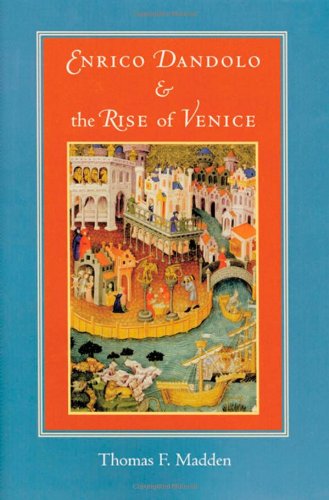

Most ebook files are in PDF format, so you can easily read them using various software such as Foxit Reader or directly on the Google Chrome browser.
Some ebook files are released by publishers in other formats such as .awz, .mobi, .epub, .fb2, etc. You may need to install specific software to read these formats on mobile/PC, such as Calibre.
Please read the tutorial at this link: https://ebookbell.com/faq
We offer FREE conversion to the popular formats you request; however, this may take some time. Therefore, right after payment, please email us, and we will try to provide the service as quickly as possible.
For some exceptional file formats or broken links (if any), please refrain from opening any disputes. Instead, email us first, and we will try to assist within a maximum of 6 hours.
EbookBell Team

4.3
78 reviewsBetween the eleventh and thirteenth centuries, Venice transformed itself from a struggling merchant commune to a powerful maritime empire that would shape events in the Mediterranean for the next four hundred years. In this magisterial new book on medieval Venice, Thomas F. Madden traces the city-state's extraordinary rise through the life of Enrico Dandolo (c. 1107–1205), who ruled Venice as doge from 1192 until his death. The scion of a prosperous merchant family deeply involved in politics, religion, and diplomacy, Dandolo led Venice's forces during the disastrous Fourth Crusade (1201–1204), which set out to conquer Islamic Egypt but instead destroyed Christian Byzantium. Yet despite his influence on the course of Venetian history,we know little about Dandolo, and much of what is known has been distorted by myth.
The first full-length study devoted to Dandolo's life and times, Enrico Dandolo and the Rise of Venice corrects the many misconceptions about him that have accumulated over the centuries, offering an accurate and incisive assessment of Dandolo's motives, abilities, and achievements as doge, as well as his role—and Venice's—in the Fourth Crusade. Madden also examines the means and methods by which the Dandolo family rose to prominence during the preceding century, thus illuminating medieval Venice's singular political, social, and religious environment. Culminating with the crisis precipitated by the failure of the Fourth Crusade, Madden's groundbreaking work reveals the extent to which Dandolo and his successors became torn between the anxieties and apprehensions of Venice's citizens and its escalating obligations as a Mediterranean power.